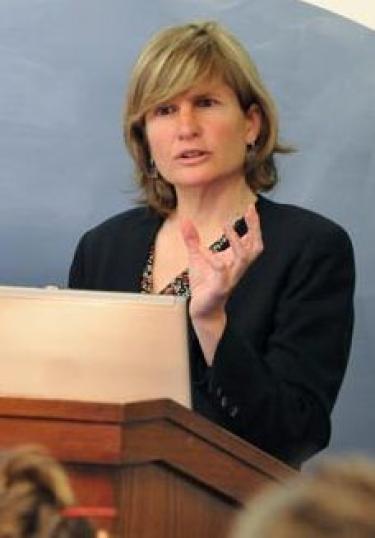 Associate Dean, Associate Professor
Associate Dean, Associate Professor
I went to law school because I wanted to be a public interest lawyer. And I wanted to be a public interest lawyer because I wanted a career where my work would have meaning, and because I was inspired by the accomplishments of lawyers (e.g., Thurgood Marshall) as well as non-lawyers (e.g., my parents) who worked for the public interest in a variety of capacities. At the time, I defined “public interest” very broadly and had no preconceived idea about what it might mean. Upon graduating from law school, I secured a one-year public interest fellowship that placed me in the nonprofit community in Washington DC working on employment and civil rights law. I worked 80 hours a week for $18,000 a year and was happy as a pig in mud: the people were terrific and the work was intellectually challenging and emotionally satisfying. That fellowship turned into positions as staff attorney and later director of legal and public policy in the nonprofit world, and thereafter into a political appointment with the Department of Justice’s Civil Rights Division.
Since becoming a law professor, my scholarship and pro bono work continue to focus on constitutional law, civil rights, and employment discrimination. For example, I write amicus briefs in the U.S. Supreme Court and federal courts of appeal, testify before Congress and federal agencies on civil rights law and policy issues, and I served as leader of President-elect Obama's transition team charged with reviewing the Equal Employment Opportunity Commission in 2008-09. I frequently hire law students as my research assistants who work on these projects as well as on my related scholarship. On more than one occasion, I’ve been able to accept invitations to file an amicus brief in the Supreme Court or to testify before Congress on very short notice only with the help of my students’ terrific work and support.
A couple pieces of advice for students interested in public service work: Invest in your writing skills by seeking out as many writing opportunities as possible that involve detailed feedback on your writing; you can do this through classes, externships, paid employment and volunteer work. And try a bunch of different types of public service work through clinics, externships, pro bono, and paid employment – and give them your all. Doing so not only provides you with valuable exposure to a wide range of workplaces (big, small, government, nonprofit, litigation, policy), but also enables you to develop the networks and references who can help identify opportunities for you and who can vouch for your professionalism and work ethic. I’ve done a lot of hiring in my various jobs, and I’ve found that a candid reference is one of the most important factors in my decision making.


